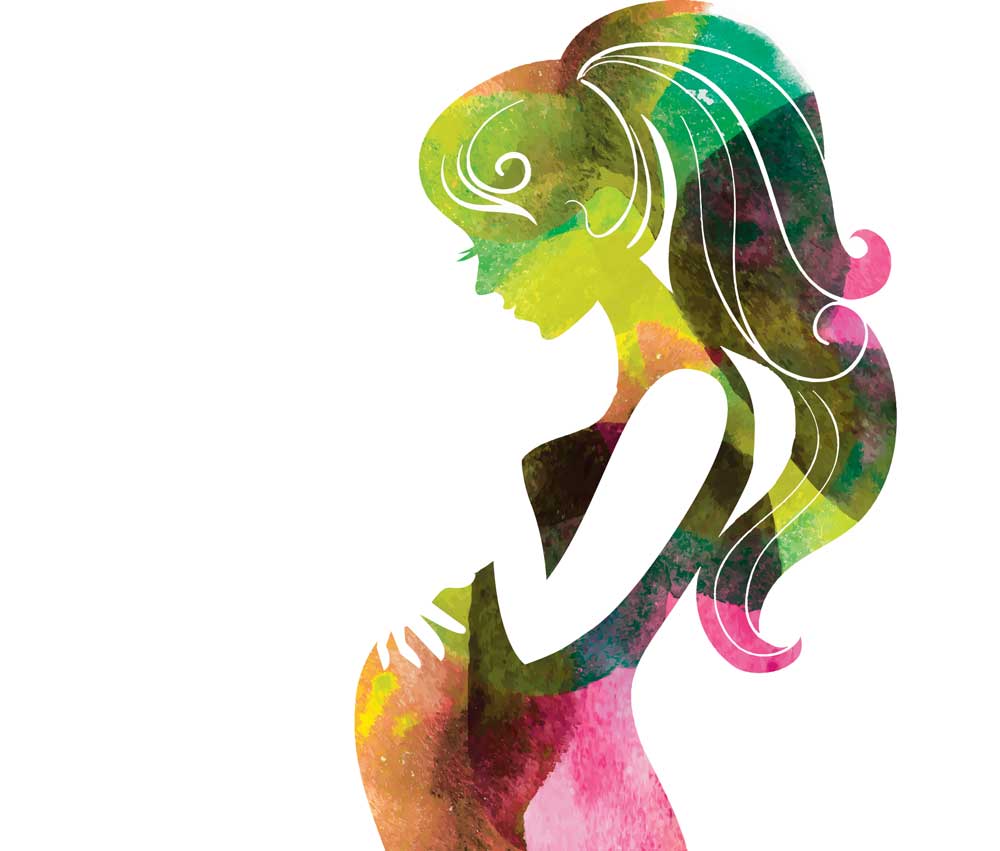Advertisement
Thyroid Health & Fertility
Is hypothyroidism the cause of unexplained infertility?

Hypothyroidism (a deficiency in thyroid hormone) is common in women who have difficulty conceiving, yet medical practitioners often test for it inadequately or overlook it completely. When thyroid assessment is neglected, women who are trying to conceive are commonly given a diagnosis of “unexplained infertility,” leaving them confused about what to do next.
Advertisement
How the thyroid affects conception
Thyroid health and pregnancy are interconnected. Your thyroid influences cell energy and growth, and therefore abnormalities in thyroid function have a direct effect before, during, and after conception. In my practice as a doctor of traditional Chinese medicine (TCM), women often come to me as a last resort in hopes of conceiving. Over the past 15 years I have observed that a large number of these patients have some level of thyroid dysfunction.
Insufficient thyroid hormone can inhibit ovulation, affect the endometrial lining, and cause issues with the implantation of a fertilized embryo. In addition, the physical changes that occur during pregnancy add pressure to a woman’s system, causing those with hypothyroidism to be more likely to miscarry.
The proper treatment of your thyroid can help prevent these problems and improve your chance for a healthy pregnancy. Fortunately, appropriate medication, lifestyle, and dietary changes can prevent a negative impact for you and your unborn child.
Advertisement
Recognizing a thyroid imbalance
To assess the health of your thyroid gland, most conventional physicians rely on a thyroid stimulating hormone (TSH) test. Unfortunately, the TSH is not a thorough assessment of your thyroid function, and the optimal range of your TSH is much narrower for fertility. Moreover, your signs and symptoms are often ignored.
However, diagnosis with Chinese medicine is based on patterns of imbalance and does not rely on conventional lab results. The assessment is based on signs and symptoms, that could include the following.
Fatigue
Persistent fatigue with no obvious cause, or feeling tired no matter how much you sleep.
Sensitivity to cold
Being unusually sensitive to cold or having a body temperature consistently low (under 98.6 F or 37 C) during the day is a sign of a sluggish metabolism.
Unexplained weight gain
Weight gain for seemingly no reason that’s usually difficult to lose, even with dieting and exercise.
Constipation
A slowed metabolism affects your entire body, including your digestion.
Skin and hair changes
A puffy face, pale complexion, dry skin, and thinning hair are common.
Cognitive difficulties
It’s typical for women to have difficulty concentrating, have a poor memory, or feel foggy headed.
Other signs and symptoms of hypothyroidism include
- carpal tunnel syndrome
- goiter (enlarged thyroid gland)
- muscle cramps
- poor circulation
- poor appetite
- slow reflexes
- slowed heart rate
The signs and symptoms of hypothyroidism can be subtle and are regularly dismissed as part of the normal aging process. If you’ve been diagnosed with unexplained infertility, consider seeing a health care practitioner well versed in recognizing thyroid imbalance.
Advertisement
Treating infertility by supporting your thyroid
There are successful treatments available, both pharmaceutical and natural. Natural treatments work to reduce systemic inflammation, normalize hormone output, and optimize hormone conversion.
Allopathic medicine normally includes a synthetic or desiccated thyroid replacement. Medication can help relieve your symptoms and, for some, is enough to achieve pregnancy, but does not address the underlying disorder. If you decide to take a thyroid prescription, I recommend treating your imbalance at the same time.
Advertisement
Dietary and lifestyle changes
Diet and exercise are key to repairing your thyroid.
Diet
Eliminate refined sugar, as too much can lead to insulin resistance and metabolic disorders. Eat plenty of fresh unprocessed foods and moderate amounts of healthy fats such as avocado, fish, flax, and olive and coconut oils. You can also support your thyroid by reducing processed foods and by cooking goitrogens (substances that can cause an enlarged thyroid gland) such as
- broccoli
- Brussels sprouts
- cabbage
- cauliflower
- kale
- mustard greens
- peaches
- peanuts
- radishes
- spinach
- strawberrries
- soy
Chinese medicine recommends supporting your digestive energy by lightly cooking your vegetables and eating warm meals.
Activity
Exercise such as walking, yoga, and qigong helps increase blood circulation throughout your body, including your glands and organs. However, excessive or strenuous exercise can deplete your body and contribute to a hormone imbalance. In TCM we suggest spending time doing restorative activities such as stretching, reading, walking, drawing, writing, and deep breathing.
It’s important to find a health care practitioner who understands your health needs. If you experience the symptoms of hypothyroidism while your lab tests are normal, it may be time to seek another opinion. If you’re having difficulty conceiving or are experiencing recurring miscarriages and you haven’t found an answer, consider seeing a natural health care practitioner who specializes in endocrine function. He or she can provide the appropriate treatment to help you conceive a healthy baby.
Herbal treatment for hypothyroidism
Hypothyroidism can disrupt your digestive function, affecting your body’s absorption of nutrients. This can lead to depleted stores of the vitamins and minerals that your reproductive system needs to function optimally. Taking high quality herbs and supplements can improve your thyroid function, restore lost nutrients, and strengthen your digestion.
- ashwagandha
- bladderwrack, kun bu, and hai zao
- bupleurum (chai hu)
- eleuthero
- forskolin
- guggul and bauhinia bark
- omega-3 fatty acids
- probiotics and phytosterols
- selenium
- vitamin D
Chinese herbal medicine offers an alternative way to treat reproductive disorders related to hypothyroidism such as polycystic ovary syndrome (PCOS) and endometriosis. Since each patient is different, a Chinese herbal prescription is made up of several herbs that are customized to treat your individual needs. Herbs are prescribed to strengthen your body so that you can eventually eliminate the herbal support.
Note: Always use caution and consult a health care practitioner when taking herbs and supplements.





